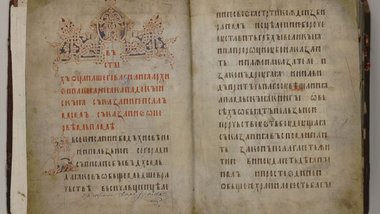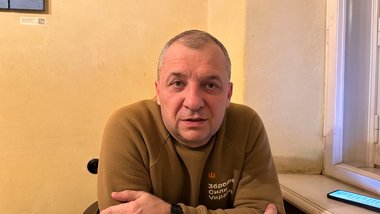Stalemate Over Kharkiv’s Greek Catholic Church
(Evgenia Mussuri, Keston News Service, 25 October 2001) Despite bowing to pressure from the Greek Catholic Church last month to overturn a decision cancelling the allocation of a plot of land to build a church, the administration of the eastern Ukrainian city of Kharkiv has still not given the Greek Catholics permission to begin building on the site they have already consecrated. The city authorities have declared that if the Greek Catholics build on the site this will lead to tension and claim to be looking for new options to offer the 300-member congregation, although one city official told Keston News Service that senior officials do not want to find a solution.
When in mid-July the administration withdrew its decision granting a plot of land to the Greek Catholic parish (see KNS 6 July 2001 and RISU 22 August 2001), the Greek Catholics appealed to the public, attracted local and regional media coverage and created a committee to protect what they regard as their rights. This public pressure forced the city administration to cancel the July decision in early September. The Greek Catholic parish priest, Father Mykola Semenovich, complains that the city administration has repeatedly scheduled meetings to discuss the issue, but none of them has ever taken place. 'The land we were given was consecrated and a cross has been erected there,' he told Keston from Kharkiv on 10 October. 'We cannot just leave it and start construction somewhere else. That would be a sacrilege and vandalism.' He also complained about the alternative sites the administration has offered. 'The places they are ready to give us are not fit for building a shrine. One was a former Jewish cemetery, the other is a former Tatar cemetery.' Father Mykola says they have been waiting for the permission for too long to give up now and vows that he will keep on fighting. After many years of searching in vain for a site to build its parish church, the Greek Catholic community was finally given approval to build and allocated a site by city officials in 1999. Then the trouble started. The land assigned by the city bordered a state-operated hospital, the Institute for Mother and Child Health Protection. Hospital administrators intervened and convinced the city to rescind its decision, claiming that the site was rightfully theirs and that their patients' health could be impaired by having the church as a neighbour. Neither the hospital nor the city could produce any documents proving that the land belongs to the hospital. Father Mykola told Keston he believes religious intolerance, not heath or legal issues, is at the root of the problem. As proof, he points to the fact that the hospital asked the Ukrainian Orthodox Church to intercede with the city on its behalf. The Orthodox bishop of Kharkiv, Metropolitan Nykodym (Rusnak), published a letter in a church bulletin in July appealing to the city authorities to stop the Greek Catholics from building. He argued that the city had granted permission illegally and that construction of a Greek Catholic church would lead to inter-denominational tensions. When Keston contacted the Kharkiv Orthodox diocese on 11, 12 and 15 October, it was told no comments were available because the people in charge were absent. For their part, city officials say that the priest is being obstinate. 'Father Mykola is too stubborn,' Volodymir Kyiko, head of the administration’s department for humanitarian issues, told Keston from Kharkiv on 11 October. 'He does not want the alternatives we propose to him, but I am sure we will find a solution.' Kyiko says the administration is seeking a solution that will satisfy both the Greek Catholics and the hospital. 'We want to avoid the tension that surrounds this issue,' he said, adding that the conflict has nothing to do with the fact that Greek Catholics are a minority in this traditionally Orthodox part of Ukraine. Father Mykola says religious tension already exists. However not everybody at the administration shares Kyiko's views. Ivan Holovensky, head of the department for non-profit and religious organisations, says the city authorities are trying to find a compromise which does not exist. 'There is no alternative, the Greek Catholics either build a church or will struggle for the right to build it,' he told Keston on 11 October. Although Holovensky did not want to speak openly for fear he might lose his job, he said he had worked out some alternatives. One of his options could resolve the situation entirely, he believed, but was unwilling to reveal what it was even though he said the city authorities were not prepared to consider it. 'Unfortunately I am not authorised to decide such issues, and some higher organs are not interested in finding a solution,' he claimed. Source: Keston Institute http://www.keston.org









